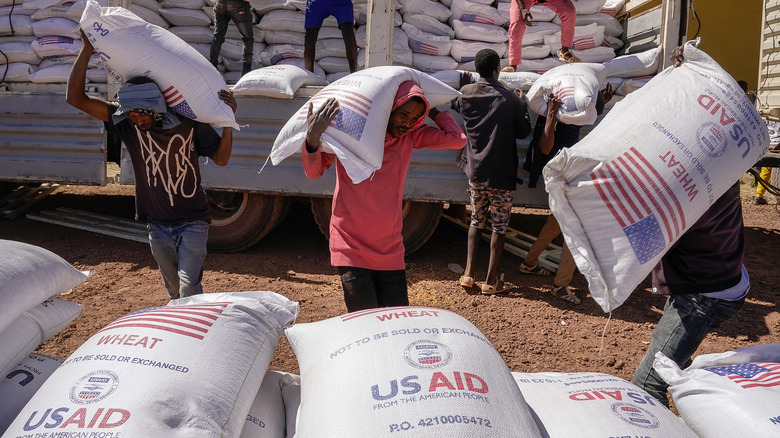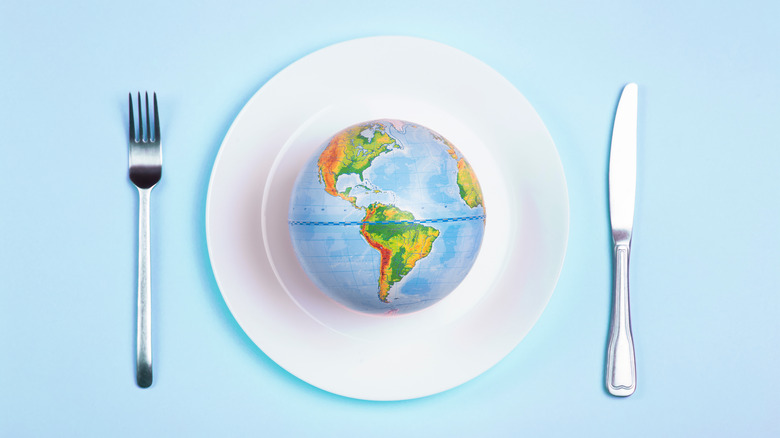USAID Says Not Enough Is Done To Feed People In The Horn Of Africa
According to CNBC, despite growing awareness of global food insecurity, more people are going hungry around the world. The reasons are myriad, according to WorldBank, including record-breaking food prices, the Russian invasion of Ukraine, a dysfunctional supply chain, and fallout from the COVID-19 pandemic. Moreover, these reasons tend to overlap and exacerbate one another by undoing the progress made in previous years. Additionally, they divert much-needed resources for building better infrastructure aimed at preventing future hunger, per a discussion led by celebrity chef Tom Colicchio, via Twitter.
For 115 million people in the African continent's easternmost peninsula, also known as the Horn of Africa (per BlackPast.org), food insecurity has become a way of life with as many as 37.5 million who are considered in crisis, according to an August 2 report by the World Health Organization (WHO). It is, in fact, the worst hunger crisis of the last 70 years, thanks in large part to drought conditions that have been ongoing for four straight years, with a fifth now being predicted by the World Meteorological Organization, according to Samantha Power, administrator of the United States Agency for International Development (USAID), speaking to Colicchio via Twitter.
With 20 million more Africans at risk, according to Power, the United States stands out for its efforts toward addressing the problem. Moreover, the Biden Administration has committed to ending America's own food insecurity within eight years (per NPR). However, one country is not enough to change the food insecurity in the Horn of Africa.
USAID is asking other nations to step up to support Africa through drought-related devastation
Earlier in 2022, USAID pledged to combat hunger with a focus on the Horn of Africa. Samantha Power spoke as part of an August 31 panel that also included leaders from several international relief organizations (via Twitter). According to Power, the U.S. alone contributed close to 85% of all funds raised in what is now an international appeal on behalf of the people of the Horn of Africa. But, as Power explained, " ... while the American people and Congress have been generous, we do not see the kind of response that we need globally to meet these needs and get these vulnerable families through this." Suggesting that no one country should be expected to shoulder the resources needed to combat the crisis, Power, her colleagues at UNICEF, and other humanitarian organizations are calling upon "other countries to step up as they have in the past."
"There's just not enough money in any one country's bank account — and the needs of the world today," Power stated. While other nations joined the U.S. in supporting Africa through a 2016/2017 drought, overall funding is down 66%, despite that the current drought is much more severe. In particular, Power is looking to China to contribute at the scale world health experts believe is needed. Individuals are also encouraged to donate via GoFundMe: Global Food Fund.

